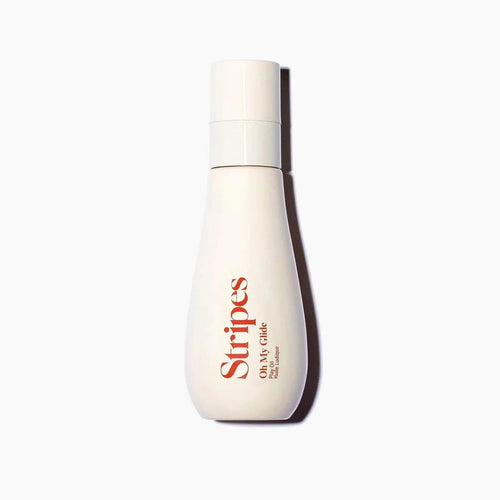You’re not crazy. Perimenopause and menopause can cause biological changes that may affect your mental health. You’re also not alone: It’s extremely common to experience depression before, during, and after menopause, especially if you’ve dealt with depression in the past or if present circumstances are weighing on you hard.
Why do I feel depressed during menopause?
Our fluctuating hormones can cause moodiness, according to the North American Menopause Society (NAMS). Twenty-three percent of people experiencing perimenopause and menopause report feeling mood changes.
According to one research paper, a feeling of sadness and downheartedness is one of the most common manifestations of (peri)menopause. But there are many reasons beyond our hormones that could have us feeling blue in midlife.
Sadness may be the sum of our menopause symptoms, explains Lauren Streicher, M.D., founder and director of the Northwestern Medicine Center for Sexual Medicine and Menopause and host of Dr. Streicher’s Inside Information: THE Menopause Podcast.
"We may feel sad because we’re not sleeping, experiencing sexual issues, or feeling bad about our changing bodies," says Streicher. "We may be coming to terms with the end of our childbearing years, or struggling with infertility. Our marriages may fall apart. Our parents may be sick or dying.”
Smiling through the pain of it all is the last thing you should do. Identifying your symptoms and adopting useful strategies can make a huge difference in your quality of life and daily function.
What can I do about menopausal depression?
When we’re depressed, healthy practices like good sleep, exercise, and nutrition may take a backseat. It’s funny (not really) that the things that make us feel better are the very last things we want to do when we’re feeling low. While it may feel hard to rally the troops and get off the couch, all the positive practices that improve menopause symptoms can also keep a depressed mood at bay.
Solid advice: Focus on lifestyle tweaks that feel doable and aren’t overwhelming. Here are some menopausal depression treatments to try:
Hang out with nicer people.
Who you hang out with can make a huge difference in your mood and encourage you to prioritize what matters most when you’re struggling. Spend time with friends who can empathize with your experience and who encourage you to take care of yourself, and not people who dismiss you or judge you.
Say nice things to yourself.
Be nice to you! Instead of saying “Menopause has made me into a monster!" or "I'll never feel normal again," consider rephrasing it as “This hormonal roller coaster isn’t going to last forever — I will get through it.” Taking the power back can lower the emotional temperature and help you cope with daily stressors as they come.
Drink less alcohol.
Much as it can lighten the mood, it can’t be wine-o-clock all the time. Alcohol is a depressant that can interfere with sleep and increase depression symptoms over time. It’s also a known hot-flash trigger. Instead of having a nightcap, try meditation or a warm bath. Don't forget the lavender bath salts or your favorite calming shower gel.
When should I talk to a health provider?
If depression is interfering with your day-to-day life and interactions, you may need to talk to your doctor. Declining estrogen can affect the amount of mood-boosting chemicals in your brain, and antidepressant drugs can return those chemicals (namely serotonin and norepinephrine) that may improve your mood and overall function.
When you talk to your primary care provider or psychiatrist, be honest about how you’ve been feeling, especially if your thoughts have taken a darker turn. Your doctor can help you decide if an antidepressant is a good solution for you. (Note that antidepressants may not help instantly — it can take them four to six weeks to kick in.)
If your sadness is interfering with your life or interactions with the people you care about, or you’ve had episodes of depression in the past, you shouldn’t tough it out on your own.
We win no awards for struggling silently. If you’re having a hard time, make an appointment with a healthcare professional or menopause specialist and talk it out, sooner than later.
Find a therapist.
You’re not complaining, you’re depressed, and seeing a therapist can be a huge help for people coping with depression. It can feel very freeing to talk to someone who can show you empathy and normalize your experience. Therapists are also trained to teach you coping skills that enable you to manage your mood during this hectic time in your life.
For example, cognitive behavioral therapy can show you how to pick up on negative thought processes and reframe your thinking.
Consider hormones.
If your healthcare provider thinks your depression stems from the hormonal changes of menopause, they might recommend a hormonal treatment option. For some, taking birth control is enough to manage symptoms; for others, hormone replacement therapy (HRT) may be the way to go.
Some studies indicate that estrogen therapy can help with major depressive disorders during perimenopause but not after menopause, suggesting that our symptoms may have more to do with hormonal changes than with the total lack of estrogen. As with any medication, hormones may cause some unwanted side effects, so it’s best to talk through the pros and cons with your doctor.
Keep going.
Don’t lose hope — whether your depression is caused by your haywire hormones or overwhelming life events (or both), you’ve got options. You deserve to feel better.





